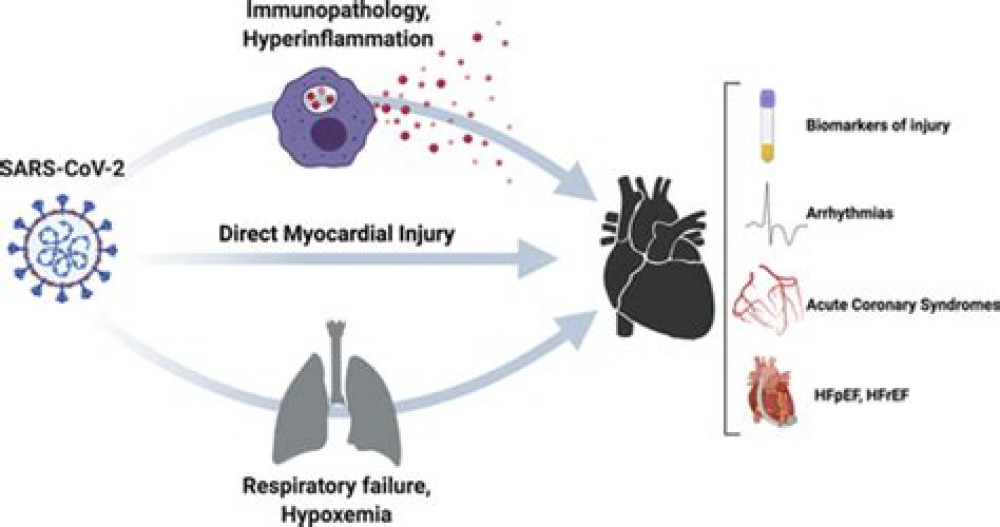Mar 18, 2020 Cardiology Magazine
Authors: James L. Januzzi Jr., MD, FACC
- What are the potential mechanisms underlying troponin elevation with COVID-19 infection? Rise and/or fall of troponin indicating myocardial injury is common among patients with acute respiratory infections and correlated with disease severity. Abnormal troponin values are common among those with COVID-19 infection particularly when testing with a high sensitivity cardiac troponin (hs-cTn) assay. In a recent article summarizing clinical course of patients with COVID-19, detectable hs-cTnI was observed in most patients, and hs-cTnI was significantly elevated in more than half of the patients that died. The mechanisms explaining myocardial injury in those with COVID-19 infection are not fully understood, however in keeping with other severe respiratory illnesses, direct (“non-coronary”) myocardial damage is almost certainly the most common cause. Given presence of abundant distribution of ACE2 – the binding site for the SARS-CoV-2 – in cardiomyocytes, some have postulated that myocarditis might explain rise of hs-cTn in some cases, particularly as acute left ventricular failure has been described in some cases. Lastly, acute myocardial infarction (MI) – either Type 1 MI based plaque rupture triggered by the infection, or Type 2 MI based on supply-demand inequity – is always possible. Importantly, a rise and/or fall of hs-cTn is not sufficient to secure the diagnosis of acute MI, which should be based on clinical judgment, symptoms/signs, and ECG changes. Given the frequency and non-specific nature of abnormal troponin results among patients with COVID-19 infection, clinicians are advised to only measure troponin if the diagnosis of acute MI is being considered on clinical grounds and an abnormal troponin should not be considered evidence for an acute MI without corroborating evidence.
- What are the potential mechanisms underlying elevation of natriuretic peptides with COVID-19 infection? Natriuretic peptides are biomarkers of myocardial stress and are frequently elevated among patients with severe respiratory illnesses typically in the absence of elevated filling pressures or clinical heart failure. Much like troponin, elevation of BNP or NT-proBNP is associated with an unfavorable course among patients with ARDS. Patients with COVID-19 often demonstrate significant elevation of BNP or NT-proBNP. The significance of this finding is uncertain and should not necessarily trigger an evaluation or treatment for heart failure unless there is clear clinical evidence for the diagnosis.
- What testing should be performed in COVID-19 patients with acute myocardial injury or abnormal natriuretic peptide results?
For More Information: https://www.acc.org/latest-in-cardiology/articles/2020/03/18/15/25/troponin-and-bnp-use-in-covid19
